books read in 2021
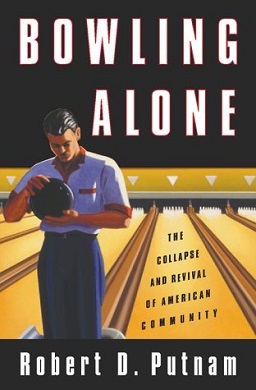
Bowling Alone
by Robert D. Putnam
A book that I had heard a lot about before I ever read it, mostly in the footnotes of other books making similar arguments. I'm glad I finally had the time to actually read this! Putnam argues that Americans are becoming less socially engaged, and he details exactly why this is a huge issue. Stop watching television and kill your cars, folks.
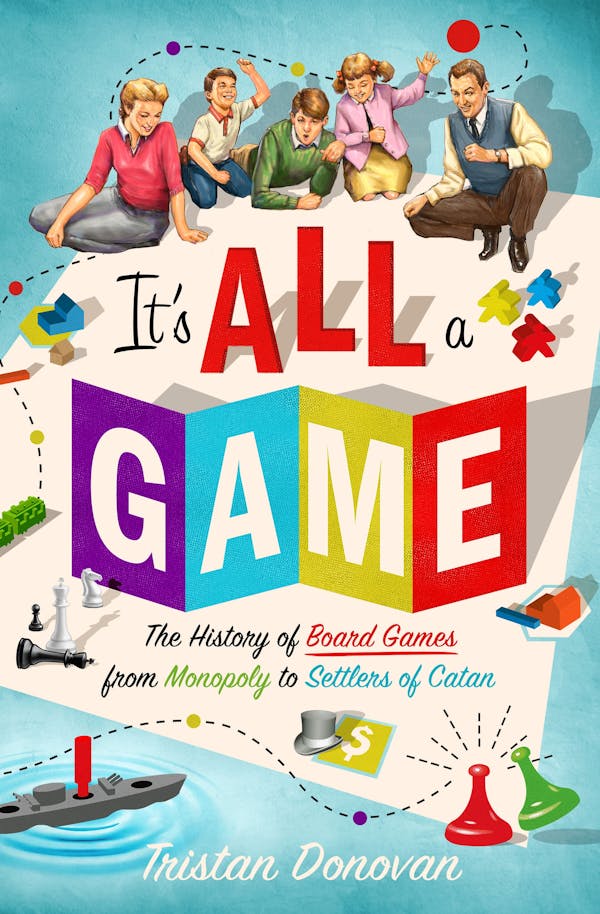
It's All a Game
by Tristan Donovan
A really fun and informative history of board games. Donovan takes us through the history and cultural significance of games like Monopoly, Scrabble, and Trivial Pursuit, and attempts to explain what all these games said about the cultures they arose from. I thought the chapter on Marvin Glass & Associates, the creators of Operation, was perhaps the most interesting.
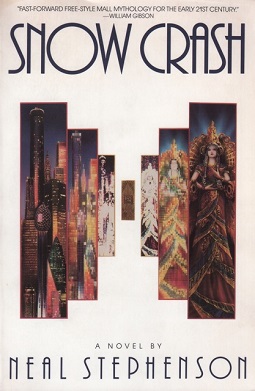
Snow Crash
by Neal Stephenson
I wanted to read this because I wanted to get to the source of the Metaverse hellscape we are currently hurtling towards, but this book was honestly a lot of fun. Hiro Protagonist seems like the archetype for just about every contemporary nerd power fantasy, and the skateboarding/harpooning thing was undeniably very cool. The history, science, and theology is shaky, but the concepts are fun.

Walkman
by Michael Robbins
Wow what a lovely poetry collection. I had read the title poem, "Walkman," earlier this year, and I think it might literally be my all-time favorite poem now. The rest of the collection is far darker than that poem, but many of the poems still ring with righteous anger. I particularly enjoyed the poem "CVS on Fire", which talks about the poetry of a CVS being on Fire on Fox News.

It
by Stephen King
What a tome! Stephen King tried to write a horror novel about childhood, memory, the death of small town America, neoliberalism, racism, and general American carnage - and he mostly succeeds. Although the book doesn't stick every landing, I would say that it sticks enough of them to be more than worth its length. And it's a genuinely terrifying read.

Picnic at Hanging Rock
by Joan Lindsay
An eerie, surreal, mysterious historical novel about a group of girls who go missing at Hanging Rock in Austrailia. I particularly enjoyed how much Lindsay focuses on the environment of Austrailia and contrasts that with the stuffy Victorian society the characters move about in. It could be interpereted as a meditation on the wildness of nature, particularly in contrast to those who try and historicize or dismiss it.
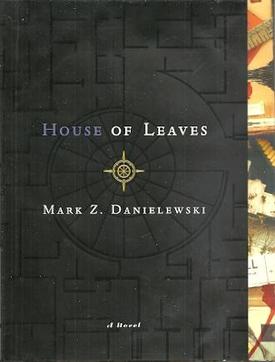
House of Leaves
by Mark Z. Danielewski
An expertly crafted postmodern love story that exists within the confines of a horror novel. The passages that detail the depth of the house are terrifying, and the Johnny Truant storyline is endlessly fascinating and worth rereads. This was basically a masterpiece, and one that I would definitely recommend returning to myself. Even if it is hard to keep track of all the footnotes and appendices.

The Echo Wife
by Sarah Gailey
This book was so thematically rich for a thriller! I've always wanted to read something by Sarah Gailey, and I'm so glad I finally found the time to make it happen. They really know how to keep the tension running through the book while still exploring diverse themes, including genetic determinism, free will, and - you guessed it - consciousness. I was completely thrown off by the ending in the best way.

Are You There God? It's Me, Margaret
by Judy Blume
This is the first middle grade book I've read in a while, and I enjoyed it! I thought the frank discussion of religious confusion was refreshing for a book intended for younger readers, and I understand why it has remained so critically acclaimed. I also thought the background references to community groups was interesting and made me think more about the breakdown of community groups in recent years.

The Galaxy, and the Ground Within
by Becky Chambers
Following the most human book in the Wayfarers series with the most alien, Becky Chambers closes out a wonderful series with another heartfelt, character-driven story about a group of people who get stuck on a planet together and find friendship and community with each other. The thoughts about friendship and how meaningful it is across cultures was partiularly lovely to read. Sad to see the series end, but so glad I read it!
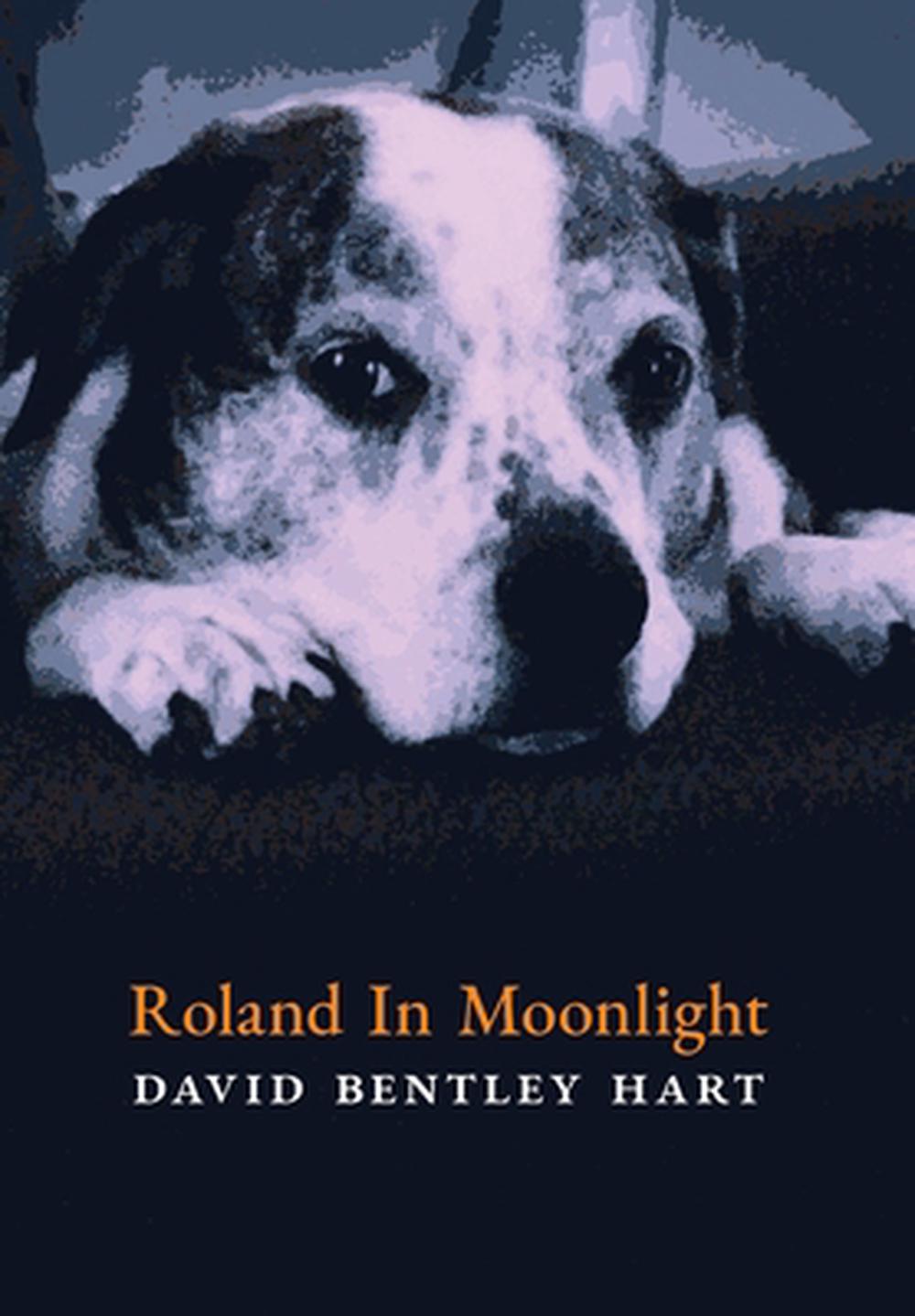
Roland in Moonlight
by David Bentley Hart
This book, which is presented as a series of dialogues between Hart and his dog, is breathtaking in scope while still remaining essentially committed to a heartfelt narrative. Meditations on consciousness, religion, politics, as well as the beauty of both life and death are found within its pages. Just an absolutely wonderful read, one that uplifts, inspires, and challenges.
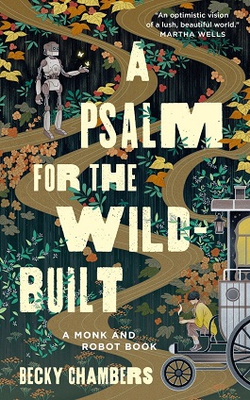
A Psalm for the Wild Built
by Becky Chambers
This is a very cute, very uplifting story about a tea monk and a robot, both living in a solarpunk world much better than the world we currently inhabit. I loved the depiction of rewilding and eco-focused living, and I thought some of the discussions on consciousness fit right in with a lot of the other books I have read this year. Becky Chambers is always a joy.

The Fire Never Goes Out
by Noelle Stevenson
I had been waiting for my local library to finally get a copy of this, and I was excited to dive in when I finally got the chance. Reading Noelle's story in her own words (and pictures) was very funny, heartwarming, and inspiring. I think this only adds to the committment to basically seek out anything they create going forward. I mean, I was gonna do that after She-Ra anyway.
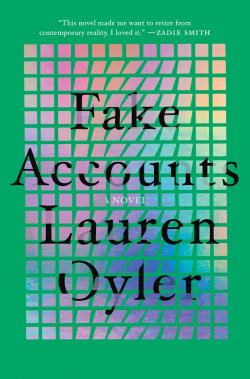
Fake Accounts
by Lauren Oyler
I heard an online critic mention that this book was far less recommnedable than Patricia Lockwood's book, and I disagree. I actually feel like comparing the two is kind of silly, since although they both deal with the internet, they are actually quite different. Oyler's book is about the way the internet ruins our interpersonal relationships by forcing us to consider every other person as a means to an end.

No One is Talking About This
by Patricia Lockwood
It took a poet to write the first great novel about the internet. Of course, this book isn't really about the internet - it's about the grieving, loving, and intimate moments that remind us how pointless spending all of our time on social media really is. This was definitely an emotional read for me. The "portal" just isn't worth it when compared to everything else you could do with your wild and precious life.

Endgame Vol. 1: The Problem of Civilization
by Derrick Jensen
This was a very challenging book to read, not least because Jensen is basically arguing that it is immoral to NOT do all that is necessary to bring down industrial civilization, even if that includes violence. I disagreed with Jensen's characterization of Christianity, which he insisted on bringing up more often than he needed, but his anger at the destruction of nature was relatable and powerful.

God and Man at Yale
by William F. Buckley, Jr.
If you needed proof that American conservatives have been whining about colleges for longer than you thought, here it is. Often hailed as the "birth of modern American conservatism", this is basically just Buckley complaining about the fact that his college professors don't take him seriously. At least Buckley admits here that what he really wants is more censorship, not less, rather than pretending to care about "freedom of speech."

Blindness
by Jose Saramago
This was a beautiful read. Saramago found ways to build up all the beautiful and transcendent moments in what is otherwise a dystopian novel, and I enjoyed that flow deeply. I am used to dystopian fiction focusing on the political allegory, but Saramago decided instead to highlight the way that humanity would maintain it's kindness, and I thought that was amazing.
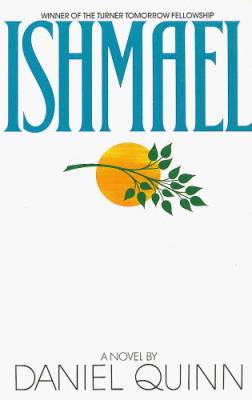
Ishmael
by Daniel Quinn
This is a novel, but it's really a philosophical treatise on the problems with human civilization and its impact on the natural world. Ishmael is the name of a gorilla who teaches all this to the unnamed narrator, and it's a fascinating read. I particularly enjoyed the way that it framed the story of Cain and Abel, as well as the way that it described our consumerist culture as a prison nobody can easily escape.

The Medium is the Massage
by Marshall McLuhan
This book is basically an academic text arranged like an art zine, and it is so much fun to read. McLuhan has always been one of the more fascinating media critics to me, and this book is chockfull of his bizarre (and accurate) predictions for the future of interactive media. In one section, he basically entirely predicts the future hell that is Twitter, in stunningly precise prose.
The Four Loves
by C.S. Lewis
Oh C.S. Lewis, what are we going to do with you? You are always so insightful, as long as you just ignore pretty much everything you ever have to say about gender and sexuality. Once again, you hit the same mark. This book was a very interesting read, and I particualrly liked the chapter on friendship. Lewis thinks that deep and meaningful friendship is undervalued in modern soceity. The way he defined friendship as someone who "sees the same" was great.

The Ten Thousand Doors of January
by Alix Harrow
I loved this book, and I loved it a lot more than I thought I was going to when I was about half-way through it. It's a wonderful fantasy that criticizes modernism in just the right way, and I adore the two central romances. It's definitely a book that will get you to believe in magic and wonder, and who could possibly complain about that? It fit right in with the David Bentley Hart works I have been reading this year.

Klara and the Sun
by Kazuo Ishiguro
Wow, what a wonderful book from Ishiguro. I bought this the week it came out, and I think it was certainly worth it. I would honestly rank this one as my favorite Ishiguro book, above both Remains of the Day and Never Let Me Go, but maybe that's just because it has a more satisfying resolution for me. One of the best books on AI I could even imagine.

The Beauty of the Infinite
by David Bentley Hart
Oh, how on earth do I summarize this. This was a very expansive work dealing with Christian reflections on modernism, post-modernism, the market, and beauty. Suffice it to say that Hart argues that most of the questions that plague modern life can be answered in ancient Christian theology, particuarly the theology best expounded by Gregory of Nyssa, in which all things are saved, and all things are, because God sustains them.

Heavy Vinyl
by Carly Usdin
This was a very quick read, but a very fun read! Basically, this is about a bunch of feminist music nerds who band together to fight the bad guys who are attempting to make music less expressive and more corporate. It also includes a healthy dose of queer romance and teenage shenanigans. This was just an awful lot of silly, heartwarming fun, with a sprinkling of 90s nostalgia for good measure.
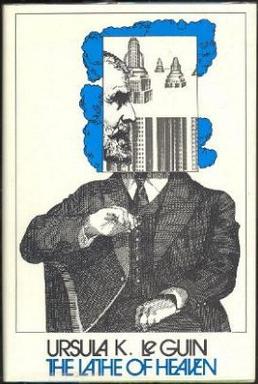
The Lathe of Heaven
by Ursula K. Le Guin
The most Philip K. Dick that Le Guin ever gets, this was a very fun book to read, and it surprised me with how romantic it ended up being. I was also taken aback with how Taoist this whole thing is, but of course, that shouldn't really be too shocking when we are dealing with Le Guin. The novel deals with manipulation, power, and acceptance in a novel way through a story revolving around reality-altering dreams.

Filling the Void
by Marcus Gilroy-Ware
Gilroy-Ware mentioned this book in After the Fact, and although they both cover simliar topics, I thought I would give this one a go as well since it focuses entirely on social media. It was a good read! Basically covered a lot of what Zuboff would cover later, while also focusing on the emotionally depressed state social media feeds on and perpetuates. Delete your accounts, folks.
Record of a Spaceborn Few
by Becky Chambers
The most human novel so far in the Wayfarers series, this book definitely stands up alongside A Closed and Common Orbit as an amazingly well-written, empathetic, and touching science fiction work. For the first time in the series, Chambers actually explores an economic system that is different from some form of space capitalism, and it works really well here. Every character is explored well, and I particularly enjoyed the Kip and Isabel storylines.

The Weird and the Eerie
by Mark Fisher
An interesting examination of "the weird" and "the eerie" in contemporary fiction. Fisher goes over a bunch of material here, including interesting films and television serials that I had never heard of before reading this book, and that I will certainly check out now. His insistence that "weird" and "eerie" things don't have to necessarily be horror was fun to think about, and I really just learned about a lot of good fiction from reading this.
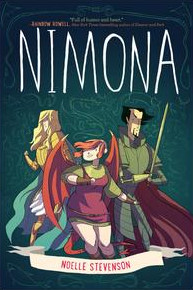
Nimona
by Noelle Stevenson
A really fun graphic novel about a shapeshifting girl and her attempt at "villainy" with an extremely sympathetic villain and a Noelle Stevenson certified friends to enemies to lovers story. This kind of reads like a trial run to what Noelle would eventually do with She-Ra, and I certainly read it because I heard people describe it to me in that way, but it definitely stands on its own as well. The character of Nimona, in particular, really works as a metaphor for queerness.

After the Fact
by Marcus Gilroy-Ware
An in-depth analysis of why exactly we have become a society so suseptible to believing in "fake news." Instead of focusing squarely on social media, Gilroy-Ware posits that the real source of all our woes is the market-driven society itself, in which money and financial success is more important than other concerns, like truth. Gilroy-Ware does focus on social media and its ills during the last chapter, but I really appreciated the broader view of how disinformation is incentivized under capitalism.

The Corrections
by Jonathan Franzen
A pretty wild book about the struggles of being a 21st century American. I really enjoyed this one. The book jumps around between the different major characters, and I particularly enjoyed the sections that focused on either Denise or Enid. Both of those characters seem to be different feminist character studies, and I particularly enjoyed the way that Enid's story ended. The writing in this one is also just very funny, and Franzen is clearly playing with how he views himself as exceptionally clever. Sometimes that is really fun to read!